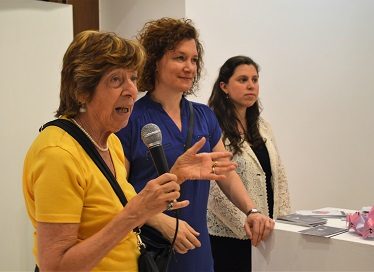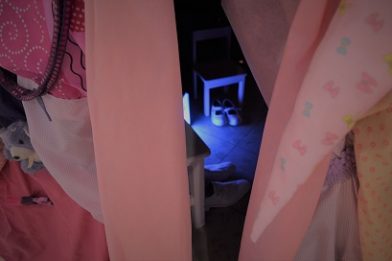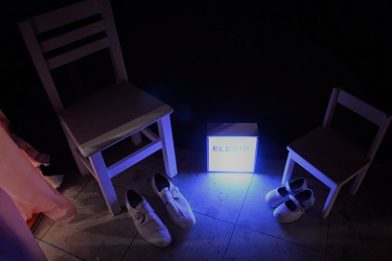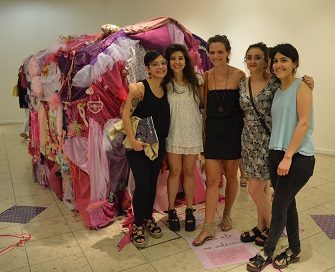Child Marriage Exists in Argentina and Requires Specific Public Policies to Protect Children and Adolescents
(25th November, 2016)
Yesterday the Foundation for the Study and Investigation of Women (FEIM) presented the report “The Situation of Child Marriage or Cohabitation in Argentina” and the installation of “The Color Pink” that expresses the violation of human rights of girls getting married early, through the language of art.
To kick off the public presentation of the document, Mabel Bianco, President of FEIM, said: “We used to believe that child marriage was not a problem in Argentina, but when faced with this study we realized that it is. It must continue to be studied in order to have specific public policy that especially protects all girls and adolescents.” Bianco emphasized that many of the married girls or girls in cohabitation are in a relationship with men that are double or triple their age. She argued that this makes the girls more vulnerable to violence. “The bigger the differences in age, the more these girls are exposed to violence by their partner,” she said.

Mariana Isasi, Liaison Officer for the United Nations Population Fund (UNFPA), said that “it is a pleasure to return to work with FEIM,” and recalled that the joint interest by the theme “Too Young to get Married” originated in March of 2015 when the photographic exhibition was exhibited in Buenos Aires. Isasi felt that “it is evident that there is a need to further deepen the topic to be able to give better responses,” and framed the initiative in the activities for the International Day for the Elimination of Violence against Women, held on 25th November .

Along with the presentation of the report by FEIM, written by Bianco and Cecilia Correa, the artistic installation of “The Color Pink” opened, carried out by the group “Acción Simétrica” especially for this project, as a strategy to make visible and raise awareness to the community about girls and adolescents who are married or cohabiting with a partner. The installation can be visited for free until the 30th November at the Borges Cultural Center (Viamonte and San Martín).

“This work expresses all that cannot be said with words about the violence and violations that these girls experience, forced to interrupt their childhood to get married or live in cohabitation,” said Bianco.

The installation represents different violations suffered by these girls, whether it is by choice, by having had their will manipulated or by being forced into this fate. It recreates a home, the most intimate and private place, which is reached by different walks of life. The exterior represents the idealization around the marriage and romantic love. The experience of the interior is the inequality of real life and its impact on the girls. The audience is questioned about this situation and invited to complete the sense of a unique and powerful word: CHOICE.

The group of artists explained how the idea of working with children’s toys came to be and invited guests to explore the work, inside and outside, as an experience that proposes reflection about the right of girls to choose their destiny, without violence nor coercion. “Acción Simétrica” is composed of the artists: Mercedes Peñalva, María Florencia Miguel, Clara Desimopne, María Langevin and Micaela Parks.
According to the last national census, the country has more than 340,000 adolescents aged 14 to 19 years old that are married or cohabiting, of which 230,000 are girls and adolescent women. Child marriage, as well as early cohabitation, is intrinsically linked to gender inequalities. They have negative consequences on the lives and health of girls and this is a violation of their fundamental rights: to education, a life free of violence, health – in particular, sexual and reproductive rights –, to express their opinions, to play and have leisure. Child marriage, or cohabitation, is violence.
- The Color Pink. The Situation of Child Marriage or Cohabitation in Argentina. Download (in Spanish)

